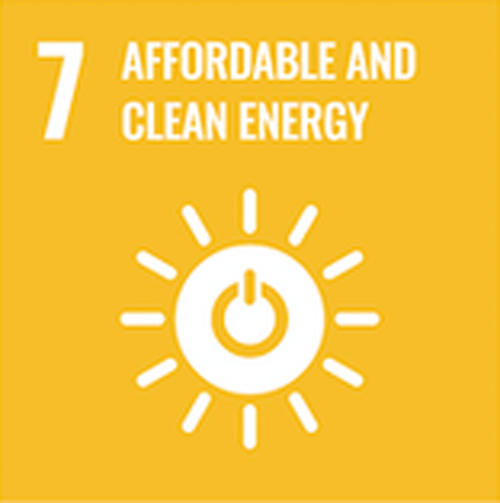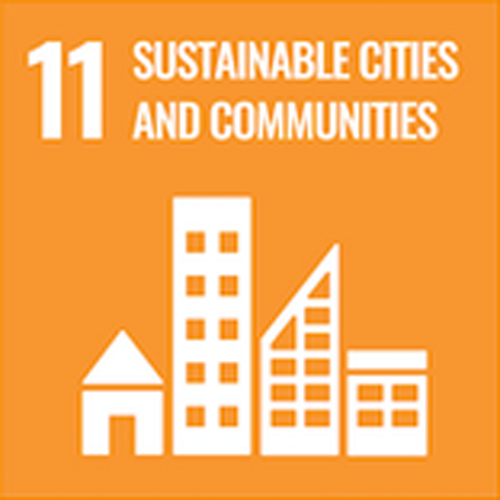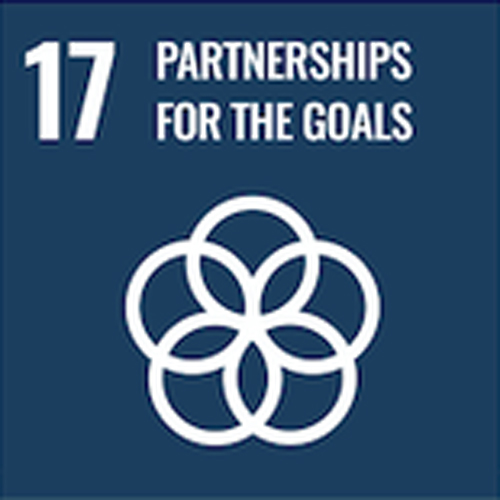Replay our 2022 webinar series on Aviation Reimagined
Griffith Institute for Tourism and Griffith Aviation hosted a third webinar series on Aviation Reimagined.
Over six sessions in September-October 2022, over 500 international experts, industry leaders, policymakers and researchers shared their insights about a transition to a low-carbon future for aviation.
The series provided a safe space for frank discussion regarding pathways to aviation emissions reductions.
This was the third consecutive year running this successful series, with new speakers and contributors delivering innovative insights from around the world.
This series was facilitated by Dr Emma Whittlesea from Griffith's Climate Ready Initiative, and Professor Tim Ryley from Griffith Aviation. The sessions were supported by co-facilitators Professor Susanne Becken, from Griffith’s Institute for Tourism; Keith Tonkin of Aviation Projects; Michael Burke of Biofutures Queensland; and Dr Michael Kane from the University of Queensland.
Sustainable Development Goals
Griffith University is aligned with the United Nation’s Sustainable Development Goals (SDGs) and is committed to promoting the values of peace, justice and accountability, to contribute to a more just and equitable world where everyone can enjoy their fundamental rights and live in harmony.
Session 1: Aviation net zero – policy leadership
Wed 21 September, 3–4:30 pm AEST
Facilitated by Dr Emma Whittlesea and Professor Tim Ryley
This webinar explored the drivers for decarbonising aviation and the policy developments and advancements that are underway across the globe, to assist the sector to decarbonise.
Making aviation net zero a success
Hemant Mistry, Director, Energy Transition, IATA and Daniel Bloch, Assistant Manager SAF
Outlining the industry’s commitment to Net Zero 2050 and explaining the key levers to ensure success, including an update on the latest developments in new energy solutions, the ramp-up of SAF, battery and hydrogen electric powertrain and aircraft developments and the key role governments can play.
Clean Aviation: leveraging disruptive technologies to power greener flight
Axel Krein, Executive Director, Clean Sky and Clean Aviation
Clean Aviation Joint Undertaking is the EU’s public-private partnership tasked with developing innovations that can dramatically reduce the environmental impact of the aviation sector, targeting efficiency increases at aircraft level of between 30 and 50%.
Decarbonising Australia's aviation sector: the roadmap to net zero by 2050
Emma Wilson, Director of Policy and Advocacy, Airlines for Australian & New Zealand (A4ANZ)
In this presentation, you’ll hear about the recently-developed Net Zero Roadmap for Sustainable Flying, which outlines how the whole Australian aviation sector will reach net zero by 2050; by utilising operational efficiencies, improved and novel aircraft technology, high quality-offsetting, and Sustainable Aviation Fuels.
Session 2: Sustainable aviation fuels
Thursday 29 September, 3–4:30 pm AEST
Facilitated by Professor Tim Ryley and Michael Burke
This webinar explored the latest sustainable aviation fuel developments that could help accelerate reduced emissions in the aviation sector.
Progress and challenges of technologies for the production of SAF
Dr Susan van Dyk, SAF Expert, Freelance Writer and Researcher
Susan presented a summary of the current status and trends of commercial production pathways of Sustainable Aviation Fuels and some of the key challenges to their commercialisation.
Role of sustainable aviation fuels in achieving net-zero aviation by 2050
Sami Jauhianen, Vice President Asia Pacific, Renewable Aviation, Neste
Sami provided an overview of the environmental benefits of sustainable aviation fuel (SAF), raw material management and future drivers of sustinability, as well as the emerging market and supply chains in the Asia Pacific region, and the impact of global regulatory frameworks on market development.
Partnering for sustainable aviation
Heidi Hauf, Regional Sustainability Lead for Asia Pacific, Boeing
Heidi outlined Boeing’s pathway to decarbonisation, including fleet renewal, network operational efficiency, renewable energy and advanced technology, with a focus on the crucial role of SAF in near-term emissions reduction, and the policy and regulatory frameworks needed to support the transition.
Session 3: Aircraft and airlines of tomorrow
Thursday 6 October, 3–4:30 pm AEST
Facilitated by Dr Emma Whittlesea and Professor Susanne Becken
This webinar explored aircraft and airline advancements towards zero net emissions.
On the road to zero emission aviation
Glenn Llewellyn, Vice President, Zero-Emission Aircraft, Airbus
At Airbus, we have the ambition to develop the world's first zero-emission commercial aircraft by 2035. There are several challenges ahead of us, as a whole ecosystem needs to be created and developed.
Flight NZ0 – Air New Zealand’s journey to net-zero carbon emissions
Jacob Snelgrove, Sustainability Manager, Air New Zealand
Air New Zealand has embarked on its most important journey yet – Flight NZ0. Flight NZ0 is a commitment that Air New Zealand will find a more sustainable way to connect with the world and reach its goal of net zero carbon emissions by the year 2050.
Delivering Emission Free Commercial Flight to Regional Australia by 2026
Alan Milne, Group CEO Skytrans and Bob Criner, CEO, Stralis
Stralis Aircraft, an Australian hydrogen electric aircraft manufacturer, and Skytrans, an Australian regional airline, have recently partnered to make emission free regional flight commercially available to the public by 2026. This presentation will outline how the companies are working together to bring the Stralis B1900D-HE hydrogen electric aircraft to the Skytrans fleet and the key benefits of this new technology.
Session 4: Transforming our airports
Thursday 13 October, 3–4:30 pm AEST
Facilitated by Dr Emma Whittlesea and Keith Tonkin
This webinar explored airport innovation and advancements towards zero net emissions.
Airports as facilitators in the journey to net zero
Jennifer Desharnais, Manager, Sustainability, Airports Council International (ACI) World
Jennifer discussed the integration of aviation sustainable energy sources in the air transport system as well as projects and guidance published by ACI World in the journey towards sustainable airports.
Aviation: to grow or not to grow
Denise Pronk, Head of sustainability, Royal Schiphol Group
As one of the largest airports in Europe, Schiphol Airport is stepping up the challenge to contribute to transition the aviation sector to a sustainable one. Will that be enough to reach the 2050 target, or is a reduction in flight movements needed?
Embedding a sustainable transition towards future low emission aviation
Claire Waghorn, Sustainable Transition Leader, Christchurch International Airport
Christchurch International Airport have undertaken a journey to decarbonise their Airport operations, using science based targets, and going beyond carbon neutrality. They are now partnering to develop a large scale onsite renewable energy precinct, looking at how airports can support the acceleration of the aviation sector transition.
Session 5: Advanced air mobility
Thursday 20 October, 3–4:30 pm AEST
Facilitated by Professor Tim Ryley and Michael Kane
This webinar explored the rapidly emerging space of eVTOLs and veliports/vertiports, and the implications for decarbonising travel.
Acceleration of the global Urban Air Mobility (UAM) ecosystem through Eve Air Mobility
Robert Weaver, Regulation and Public Policy Global Lead, Eve Air Mobility
Electric vertical take-off and landing vehicles (eVTOLs), will soon be operational. Transforming this vision into reality will require an integrated and scalable ecosystem that helps aviation authorities navigate infrastructure, regulations, technologies, airspace design and aircraft types so that they can all scale together over time.
Disassembling the infrastructure complexities of Advanced Air Mobility
Yun-Yuan Tay, Head of Asia Pacific, Skyports
For Advanced Air Mobility to succeed, it is important look beyond the vehicle, including infrastructure, traffic management and public awareness and acceptance. Yun highlights the importance of collaboration to develop infrastructure and regulatory frameworks of the industry.
Providing a clear path to commercialisation of Australia’s advanced air mobility industry
Sara Hales, Managing Director AVISTRA and Greenbird
This session explored the challenges associated with establishing advanced air mobility in Australia, address Australia’s unique AAM opportunity and context and the power of industry and Government working together to chart a clear path to commercialisation.
Session 6: Changing times and future perspectives
Thursday 27 October, 3–4:30 pm AEST
Facilitated by Dr Emma Whittlesea and Professor Tim Ryley
This webinar explored changes and disrupters in the aviation system, that could assist the sector to decarbonise.
How electric aviation will transform cities and regions: understanding future demand drivers
Dr Michael Kane, Research Fellow, Future Cities and Sustainable Transport
A look at the drivers for urban and intra-regional aviation – including changing regional settlement patterns, how the digital age is changing our relationship with the office and the city, the constant need for time efficiency in urban life, and the opportunity to drive a different tourism experience.
Opening up the world for those who want to see - sustainably
Jamison Warren, Director Global Sales and Strategic University Partnerships, FCM Travel
Focusing on both the challenges and technical/behavioural opportunities available to corporate Australia in adopting a more sustainable approach to business travel.
The path to decarbonisation and urban air mobility
Aaron Shaw, Founder and CEO of Sydney Seaplanes
One small airline’s path to decarbonisation, growth post Covid and a future that leverages past learnings and operational experience to introduce urban air mobility.
Meet the 2022 Presenters
Dr Emma Whittlesea
Dr Emma Whittlesea was previously the Program Director for Griffith’s Climate Ready Initiative and is now the Head of Partnerships at Stralis Aircraft. She has over 25 years’ experience working with communities and public, private, and not-for-profit sectors within the UK, Europe, and Australia to advance sustainability. Her professional focus is to enable climate action through effective partnerships and collaborative projects, with a particular interest in the advancement of zero emission travel.
Professor Tim Ryley
Tim Ryley is Professor of Aviation, within the School of Engineering and Built Environment at Griffith University. With over twenty-five years of transport research experience, his current research includes environmental issues associated with aviation, such as the relationship between aviation and climate change. Tim’s research is typically inter-disciplinary and industry-linked; he has developed research and consultancy collaborations with many aviation industry stakeholders, including airport, airlines and Government bodies.
Hemant Mistry
Hemant Mistry has 30 years’ experience in aviation, including technology application, commercial strategy and regulatory reform. He leads IATA’s Energy Transition activities to support decarbonisation of the industry, working across airlines, governments and the supply-chain to achieve Net Zero by 2050. During the COVID-19 Pandemic, Hemant has been responsible for IATA’s work on securing financial support for airlines and supply chain partners. Prior to this Hemant was IATA’s Director of Infrastructure and Fuel where he worked with governments, airports, ANSPs and jet fuel suppliers to build opportunities for partnership, pricing & efficiency improvement, as well as effective capacity development.
Daniel Bloch
As Assistant Manager of Sustainable Aviation Fuels, Daniel’s focus is on solidifying IATA’s data, insights and overall positioning regarding SAF, whilst acting as a point of reference between producers and airlines. He has previously worked in commercial, policy and environmental roles within the aviation industry, across both Europe and Australia. Daniel was previously the Aviation Development Manager for Tourism Western Australia, driving the recovery of the State’s airline industry coming out of the COVID-19 pandemic. He also spent time working as an Aviation consultant, with a focus on advising bioenergy companies on the opportunities within Sustainable Aviation Fuel.
Axel Krein
Axel Krein is the Executive Director of Clean Sky and the Clean Aviation Joint Undertaking. Clean Aviation develops and demonstrates revolutionary new technologies and aircraft concepts to support the EU’s climate neutrality goals for aviation in the context of the Horizon Europe framework programme for Research & Innovation and the European Green Deal. Prior to Clean Sky, Axel held various senior positions over a 20-year career at Airbus. Axel holds a Masters in Aerospace Engineering from the Technical University of Aachen, Germany.
Emma Wilson
Emma Wilson is the Director of Policy & Advocacy for Airlines for Australia & New Zealand (A4ANZ). A4ANZ is an industry group representing airlines based in Australia & New Zealand, with members including Qantas, Virgin Australia, Air New Zealand, Jetstar, and Rex. Emma works across key public policy issues including; airport regulation, aviation security, and sustainability. Working with key stakeholders both within and outside the aviation industry – in Australia and internationally – Emma has led the development of the Net Zero Roadmap for Sustainable Flying.
Michael Burke
Michael Burke is the Director of DSDILGP’s Biofutures Queensland where he is responsible for delivering the $30 million Queensland Biofutures 10-Year Roadmap and Action Plan with a vision for Queensland to be an Asia-Pacific hub in biomanufacturing and biorefining, enabling global efforts to decarbonise and build diverse local industrial capabilities. Michael has also held senior policy and industry development roles within the Department of Agriculture and Fisheries. His background is in aquatic animal husbandry, spending 15 years in a research capacity at the Bribie Island Aquaculture Research Centre. Michael has a Master of Aquaculture and post-graduate degree in aquatic animal health.
Dr Susan van Dyk
Susan has a PhD in Biochemistry and a Masters degree in Law and has been a biofuels expert for 17 years. For the past nine years, her area of focus has been conversion technologies for drop-in biofuels and sustainable aviation biofuels (SAF). She project-managed four SAF/biojet projects incorporating conversion technologies, feedstock availability and supply chains, sustainability and policy and has been the lead author on multiple reports and academic publications on SAF/biojet fuels, drop-in biofuels and co-processing. Susan was Coordinator of the IEA Bioenergy Task 39 (liquid biofuels) from 2013-2018 and is currently a research associate at the University of British Columbia.
Sami Jauhiainen
As Vice President of Asia Pacific, Renewable Aviation, Sami leads Neste’s sustainable aviation fuel (SAF) business in the Asia Pacific region. His focus is on developing the market for SAF and building supply chains and partnerships to grow its availability in the region. Sami is also working together with public and private stakeholders in developing credible roadmaps for the decarbonization of aviation. Before joining Neste in 2013, Sami worked in energy investment banking in London, advising customers in the global energy sector on mergers & acquisitions and capital markets transactions. Sami is passionate about business opportunities serving the purpose of creating a healthier planet for our children.
Heidi Hauf
Heidi was appointed to the role of regional sustainability lead for Asia Pacific in January 2021, where she leads Boeing’s advocacy on sustainable aviation policy and develops partnerships in support of aerospace sustainable goals. Heidi also chairs industry groups driving collaborative approaches, including the Sustainable Aviation Fuel Alliance of Australia and New Zealand. After starting her career as an intelligence officer in the Australian Army, Heidi has worked on systemic sustainability issues across public services, natural resource management and business, advising leaders and developing corporate sustainability strategies as well as shaping government policy in regional Australia, Asia, East Africa, Europe and the UK.
Professor Susanne Becken
Susanne Becken is a Professor of Sustainable Tourism at Griffith University in Australia and the Principal Science Investment Advisor (Visitor) in the Department of Conservation, New Zealand. She has published over 120 articles on sustainable tourism, climate change and tourism resource use, and contributes to a wide range of national and international sustainable tourism initiatives, including through her role with Travalyst, Air New Zealand, EarthCheck Research Institute, and the New Zealand Tourism Data Leadership Group.
Glenn Llewellyn
Glenn Llewellyn is Vice President, Zero-Emission Aircraft at Airbus. He is widely recognised as a top-tier leader on climate strategy for aviation. Today, Glenn is at the helm of a zero-emission revolution at Airbus with the mission to launch the world’s first zero-emission commercial aircraft program. Recognising the need for cross-industry synergies, he has been instrumental in forging partnerships with a variety of aviation and technology leaders. Previously, Glenn spearheaded the research and technology portfolio dedicated to reducing the climate impact of Airbus products. This included ground-breaking demonstrator projects such as the all-electric VTOLs – Vahana and CityAirbus and the hybrid-electric E-Fan X.
Jacob Snelgrove
Jacob works in Air New Zealand’s Sustainability team with a focus on future zero emissions aircraft technology. This work encompasses aircraft technology across hydrogen, battery and hybrid platforms as well as understanding the enabling infrastructure required to support future aircraft deployment. Jacob began his career in the airline industry 15 years ago as an airline pilot, flying for both Air New Zealand and Jetstar Airways. Prior to moving into sustainability, Jacob had held a variety of flight operations leadership roles at both airlines focused on fleet entry to service programs, safety management and pilot training.
Alan Milne
Alan has over 39 years’ experience in the aviation industry, spanning a diverse range of operational, regulatory and strategic management roles. Beginning his career as an aircraft maintenance engineer, Alan progressed through the management ranks to become a senior executive at Qantas. Alan then advanced to become the CEO of Air Niugini in the Pacific region before joining Skytrans in 2020. As a double degree qualified professional, a private pilot and a licensed engineer, Alan brings a vast wealth of knowledge of the airline industry to Skytrans.
Bob Criner
Bob is the CEO and Cofounder of Stralis Aircraft. Bob has 17 years of international aerospace experience, working on the cutting edge of electric aircraft innovation for the past 5. Most recently, he supported Heart Aerospace and Ampaire with their electric propulsion system engineering development. He was an early member of the magniX team, helping define company strategy, product roadmap, certification and was the Head of Aircraft Integration. Earlier in his career, Bob worked at Makani (GoogleX) and held lead positions on Saab, Airbus, UTC, Gulfstream, Northrop Grumman and Boeing aircraft programs. Bob studied aerospace engineering at UNSW.
Keith Tonkin
Keith has been in the aviation industry since 1986. He spent 15 years in the RAAF flying tactical transport and long-range strike and reconnaissance aircraft, then another 9 years in international and domestic operations for Qantas. Since then, through respected consultancy Aviation Projects, Keith has provided trusted expert advice about airport planning, operational risk and aerodrome safeguarding to government and corporate clients throughout Australia and the Asia Pacific, enabling the development and implementation of practical solutions to complex aviation problems.
Jennifer Desharnais
Jennifer has over 18 years’ experience in the tourism industry, including hospitality, events, tour operators, and aviation. She holds a Bachelors’ degree in Business Administration and an MSc in Air Transport Management from Cranfield University in the UK. After working for IATA in both Geneva and Montreal, she worked for different tour operators and came back to the aviation sector in 2019, when she joined ACI World. Her role focuses on supporting the World Environment Standing Committee (WEnSC), and working with the ICAO Committee on Aviation Environmental Protection (CAEP). She is continuously developing technical expertise on environmental and sustainability matters.
Denise Pronk
Denise has been working at Royal Schiphol Group since 2008. Denise is head of sustainability and is working with a vision that sustainability is integral part of the business. She is based at the Strategy and Airport Planning department, working on embedding sustainability in the organisation activities and way of working. Next to transferring the airport in a sustainable one, contributing to a net-zero-carbon emission aviation sector by 2050 is one of her main focus areas. Denise is an active member at trade organisation Airports Council International Europe and World to contribute to discussions at European and global level.
Claire Waghorn
Claire is the Sustainable Transition Leader for Christchurch International Airport, working towards accelerating the transition within the aviation sector towards zero carbon. As a Barrister and Solicitor of the High Court of New Zealand, her focus was on international climate law. She also holds a MSc International Relations (LSE, London), and LLB and BA (Hons) in Diplomacy and International Relations (UC, New Zealand). Claire’s previous roles include Parliamentary Researcher for the Green Party of Aotearoa New Zealand and Foreign Policy Officer for the Ministry of Foreign Affairs.
Dr Michael Kane
Dr Michael Kane is a Research Fellow at the University of Queensland researching future cities and sustainable transport. Michael has a PhD relating to knowledge economy, urban transport and planning. Michael is also the Head of Public Policy at RACQ working on innovative planning and development initiatives relating to clean energy, sustainable development, transport, smart cities and economic strategies.
Dr Robert Weaver
Rob is the Regulation & Public Policy Global Lead for Eve Air Mobility, the Embraer backed startup dedicated to accelerating the global Urban Air Mobility (UAM) ecosystem. Previously he was Executive General Manager Safety, Environment & Assurance at Airservices Australia, where he was a member of the Executive for six years. He has also worked for the UK’s Air Navigation Service Provider and holds a PhD in safety-critical systems from the University of York.
Yun-Yuan Tay
Yun-Yuan Tay is the Head of Asia-Pacific (APAC) for global Advanced Air Mobility (AAM) infrastructure developer and drone services operator, Skyports. He leads Skyports’ businesses in vertiport infrastructure and drone services, including business development, project management and technology deployment. With over a decade of experience in aerospace and aviation engineering and management consulting he has been a core leader of McKinsey & Company's Travel, Logistics and Infrastructure practice and held previous roles at ICF Aviation and United Airlines. Yun has a Bachelor’s degree in Aerospace Engineering, an MBA from Harvard Business School and is also a certified FAA private pilot.
Sara Hales
Managing Director of both AVISTRA and Australia’s Advanced Air mobility industry collaboration platform, Greenbird, Sara Hales is a leading Australian strategist, working to deliver value for communities and economies through aviation, airports, infrastructure, air freight and advanced air mobility. Sara has unique experience in the operationalisation of new aviation businesses and the provision of diverse and pragmatic approaches to business development. Sara is passionate about the role aviation plays in supporting the social and economic wellbeing of communities and excited about the role of AAM in creating a world where air mobility is for everyone and doesn’t cost the Earth.
Jamison Warren
Passionate is one word most people use to describe Jamison who has been with FCM for nearly 10 years. With approximately 15 years in the travel industry and his strategic mindset and infectious enthusiasm, as the Director Global Sales and Strategic University Partnerships FCM Travel, Jamison is responsible for FCM’s Graduate Program, the Intern Program, and relationships between Flight Centre’s Responsible Travel Charter, Worldwise, and FCM’s university partners. Helping universities and corporate clients make more sustainable travel choices (embracing green as the true ‘new normal’) is a particular passion.
Aaron Shaw
Aaron is Founder and CEO of Sydney Seaplanes. Based in Sydney Harbour, the company specialises in charter and scheduled tourism and regional aviation services. Sydney Seaplanes was formed in 2006, after an amalgamation of 3 disparate seaplane companies, growing to become an iconic Sydney tourism experience and an integral component of the day to day activities on Sydney Harbour. Aaron has also been instrumental in establishing seaplane businesses in Vietnam, the Philippines and Indonesia as well as consulting to seaplane companies in China, the USA and New Zealand. Aaron holds a commercial pilot’s license and seaplane endorsement.
Committed to the Sustainable Development Goals



